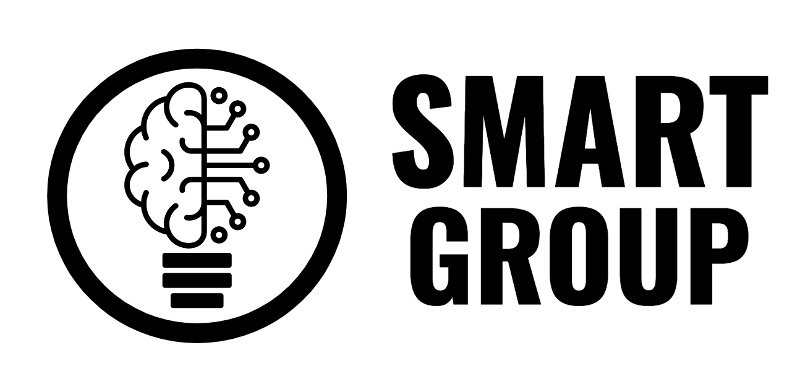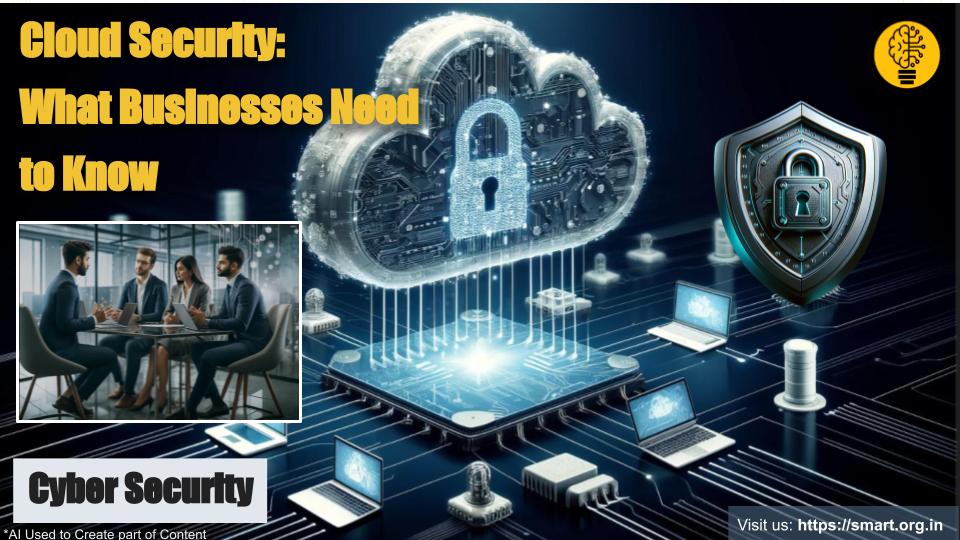Smart Group India, with its deep expertise and innovative approach, is uniquely positioned to enable startups and technology companies to implement and excel in their DevOps practices. Here, we explore the future trends and predictions in DevOps that organizations need to watch out for.
Monthly Archives: May 2024
cloud computing has become the backbone of many business operations, offering scalability, cost-efficiency, and enhanced collaboration. However, as more sensitive data is stored and processed in the cloud, the risks associated with cybersecurity breaches have also escalated. This has made cloud security an essential pillar of any business strategy
The right tools can streamline this process, ensuring your product meets user expectations and market demands. At Smart Group India, we’ve helped countless startups and tech companies achieve just that. Here’s our take on the top 10 testing tools shaping the landscape
Agile development is the gold standard. Its iterative approach, focused on quick releases and constant feedback, allows businesses to adapt and innovate rapidly. However, Agile’s speed and flexibility can only be fully realized with the power of automated testing
In the dynamic world of DevOps, where rapid deployment and continuous innovation are key, effective monitoring and logging practices are crucial.
In the rapidly evolving landscape of artificial intelligence (AI), governance is critical.AI governance encompasses the rules, practices, and frameworks that guide the ethical use, management, and deployment of AI technologies
The shift towards remote work has reshaped the landscape of the modern workplace, offering flexibility and opportunities for businesses and employees alike. However, this shift also presents unique cybersecurity challenges.
Artificial Intelligence (AI) is no longer just a futuristic notion but a significant driver reshaping the contours of various industries and job roles. As AI continues to evolve, its impact on the workforce is profound, catalysing changes that could redefine what work means in the future
Critical Security Updates Needed for iTunes and Google Chrome.The Computer Emergency Response Team (CERT) of India has recently issued urgent security alerts for users of iTunes and Google Chrome on desktop platforms.
# Security in DevOps: Integrating DevSecOps into Your Strategy
In the realm of software development and operations, the integration of security has become a paramount concern. With the increasing prevalence of cyber threats, integrating security into the DevOps process, forming what is known as DevSecOps, is essential. DevSecOps not only ensures that security considerations are embedded from the onset but also that they are maintained throughout the application lifecycle. This blog explores the strategic integration of DevSecOps and how it can fortify your development processes against potential vulnerabilities.
## Understanding DevSecOps
DevSecOps represents the philosophy of integrating security practices within the DevOps process. It emphasizes the importance of security in the earliest phases of development, ensuring it is a priority rather than an afterthought.
– **Proactive Security**: Shifts security practices from a reactive to a proactive approach.
– **Continuous Security**: Integrates automated tools to continuously assess and address security risks.
## Key Benefits of DevSecOps
Integrating DevSecOps offers numerous benefits that enhance both security and development efficiency.
– **Early Detection of Vulnerabilities**: Identifying security issues early in the development cycle significantly reduces the costs associated with fixing them post-deployment.
– **Faster Recovery Times**: Organizations can respond more swiftly to security incidents, minimizing downtime and operational disruption.
– **Enhanced Compliance Posture**: Automatic compliance policies ensure that every piece of code complies with legal and regulatory standards.
## Integrating Security into Your DevOps Pipeline
The successful integration of security into a DevOps pipeline requires a strategic approach and the right set of tools.
### Security as Code
– **Automated Security Checks**: Implement security checks at every stage of the software development lifecycle.
– **Infrastructure as Code (IaC)**: Use code to manage and provision hardware, which can be automatically audited for compliance with security policies.
### Continuous Integration and Continuous Deployment (CI/CD)
– **Automated Security Testing**: Include static and dynamic security testing tools in the CI/CD pipeline.
– **Real-time Threat Detection**: Utilize tools that monitor and protect the deployment pipeline from emerging threats.
## Tools and Technologies for DevSecOps
Adopting the right tools is critical for effectively implementing DevSecOps.
– **Static Application Security Testing (SAST)**: Analyzes source code for security vulnerabilities without executing it.
– **Dynamic Application Security Testing (DAST)**: Tests the application in the running state, identifying runtime vulnerabilities.
– **Security Information and Event Management (SIEM)**: Provides real-time analysis and logging of security alerts generated by applications and network hardware.
## Overcoming Challenges in DevSecOps Implementation
While integrating DevSecOps is beneficial, it also presents several challenges that organizations need to navigate.
– **Cultural Shift**: Encouraging a culture that embraces security as an integral part of the development process, not just an add-on.
– **Training and Awareness**: Ensuring all team members have the necessary training to understand and implement security best practices.
– **Tool Integration**: Seamlessly integrating security tools into existing DevOps workflows without disrupting the development process.
## Best Practices for DevSecOps Success
To maximize the effectiveness of DevSecOps, consider the following best practices:
– **Embed Security Champions**: Designate or hire security experts within development teams to foster security-minded development.
– **Automate Everything**: Automate security testing and compliance checks to reduce human error and ensure consistency.
– **Frequent Audits**: Regularly audit your DevSecOps practices and tools to ensure they are effective and up to date.
## Conclusion
Integrating DevSecOps into your strategy not only enhances the security of your applications but also improves overall operational efficiency. By embedding security at every step of the development process, organizations can ensure they are proactively addressing threats and maintaining compliance.
Smart Group India provides consultancy in implementing DevSecOps and cybersecurity strategies for companies. Our expertise helps organizations seamlessly integrate security into their DevOps practices, ensuring robust and resilient software delivery. Connect with us to strengthen your security posture and safeguard your development lifecycle.










